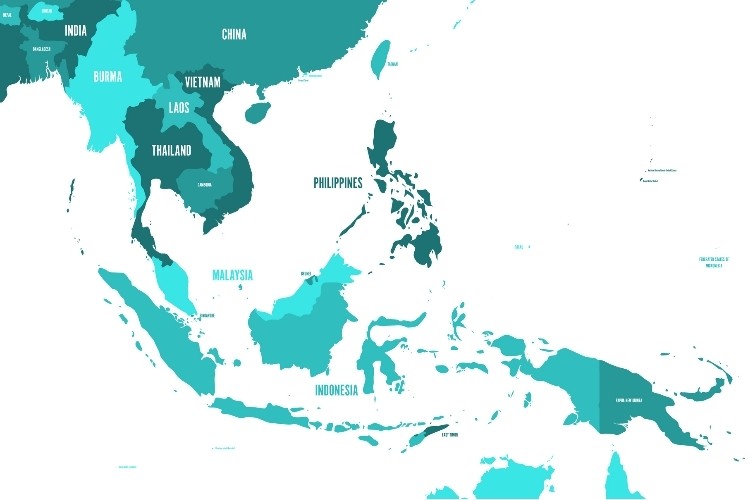Thailand and Indonesia in particular will take over from 10-year antipodean foray
SE Asia’s perfect storm of factors lures Chinese dairy investment

On November 30, Inner Mongolia Yili announced it had acquired Thailand’s biggest ice cream and frozen food distributor, Chomthana. It was part of its “internationalization process,” the company said.
It spent US$80m to purchase a 96.5% stake in the Thai company, according to Nikkei Asian Review. In business for 47 years, Chomthana operates across 13 markets, and last year cleared US$3.2m in net profit on sales of US$34.4m.
Like Yili, bitter rival China Mengniu is another dairy major that manufactures baby formula, yogurt, liquid milk and ice cream. The week prior to the Yili deal, Mengniu opened a US$50m production line in West Java, Indonesia, to produce probiotic beverages and yogurt products.
The plant is the Chinese dairy company’s second overseas dairy processing facility after one in New Zealand, and also the first dairy product manufacturing base a Chinese enterprise has placed in Southeast Asia, the company said in a statement. Again like Yili, Mengniu is part of a frenetic global expansion drive, and is the first Chinese dairy to "go global,” according to its chief executive, Lu Minfang.
Judging by the burst of investment activity, Chinese dairies may well be following on in Southeast Asia their surge of activity over the last decade in New Zealand. The region is being targeted for a number of reasons, not least for its current favorable investment climate and the might of China’s Belt and Road initiative.
Attractive to Chinese firms
Strong economic growth in many Southeast Asian markets has led to fast-growing dairy consumption and strong demand for locally sourced milk. The region has focused on smallholder farms, as opposed to the popular Chinese approach of developing their own mega-dairy projects. But as strict environmental regulations, rising wages, limited land supplies and water shortages, development of these mega-projects has petered out.
The smallholdings of Southeast Asia are attractive to leading Chinese firms as they broadly survey the region for sources of milk.
“In Southeast Asia, we still see interest in dairy farm investment by both processors as well as individual investors or investment funds,” said a report by Bles Dairies of the Netherlands.
"The investment climate in South East Asia is also favorable. Labour costs are lower and there is more land available with fewer of the ownership limitations that China has. South East Asian economies continue to do well, demand is still growing strongly and retail prices of dairy products are high.”
China’s epic Belt and Road infrastructure-building strategy, meanwhile, is an important facet of Southeast Asia’s attraction to dairies like Yili and Mengniu. And this is the case despite the region showing increasingly mixed results as countries seemingly cotton on to the level of their long-term financial commitment to China.
Malaysia’s new government, for example, cancelled a number of multibillion projects earlier this year when it realized the deals were heavily weighted in China’s favor. Myanmar slashed the price tag of a Chinese-led port project to US$1.3bn from US$7.2bn over concerns about excessive debt.
Thailand’s military government, however, has become closer to China economically and strategically over the past decade. Indonesia, initially a reluctant recipient of China’s infrastructural largesse, has been viewing Belt and Road more favorably.
Indonesian development
Mengniu’s Lu Minfang said Indonesia had a strong regional economic influence and is also one of the leading supporters of Belt and Road.
“Thus having a factory in Indonesia will boost Mengniu's competitiveness in the Southeast Asia market, conducive to the speedy execution of the Group's internationalization strategy,” he said.
Located on a 15,000 square-meter site, the plant has a daily capacity of 260 tonnes. This equates to an annual output valued at US$160m.
With the factory plan confirmed in November 2017 and construction beginning four months later, the Indonesian departments involved in the project pulled out all the stops to precipitate a notoriously time-consuming approvals process. In its announcement, the Chinese diary notably and boldly payed tribute to government for its “strong support.”
The factory is expected to provide about 1,000 jobs for Indonesians in the coming five years, and has already hired around 100 locals.
Mengniu’s overseas business has maintained strong growth at about 30% in recent years. “On the solid foundation we have in the Southeast Asia market, we will gradually extend our market reach to Africa, Latin America, Europe and the US,” Mengniu said in a statement.
“We aim to provide products and services to more consumers worldwide and become a Chinese dairy enterprise competitive in the international market, and nurture a national dairy brand deserving of global fame.”
Yili, which plans to leverage Chomthana's cold-chain logistics network to transport and sell its own branded ice cream, expects to expand into neighboring countries after establishing a foothold in Thailand’s sizeable market.
It also stressed a link between Belt and Road and the acquisition.
“With the deepening of global economic integration, we are accelerating the pace of internationalization with the help of the belt and road,” Yili said in its announcement of the Chomthana deal.
“From ‘global networking’ to building a ‘global wisdom chain’, Yili continues to promote the global dairy industry with complement resources, innovative synergy and mutual benefits,” it added.
As China’s ice cream market growth spends another year flatlining with increasingly health conscious Chinese consumers opting for less sugar, consumption continues to be high in Southeast Asian countries such as Thailand and Indonesia.
With their combination of healthy demand, favorable investment conditions and the influence of Belt and Road in some larger Southeast Asian economies, the region has some powerful reasons to attract Chinese majors. Now as its influence spreads west from the antipodes, more Asean countries will begin to come under its sphere.








